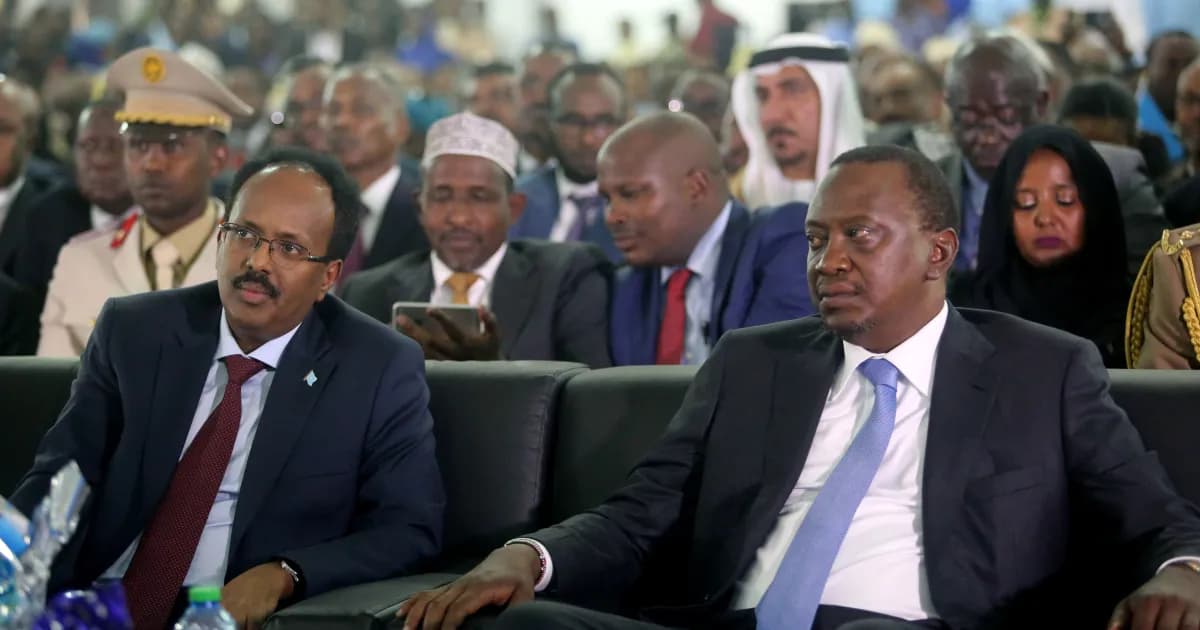We're loading the full news article for you. This includes the article content, images, author information, and related articles.
Nairobi's long-standing security-first approach to Somalia is facing a critical test as regional dynamics, including a new AU mission and persistent Al-Shabaab threats, force a re-evaluation of its diplomatic and economic strategies.

NAIROBI, Kenya - Kenya's intricate and often fraught relationship with neighbouring Somalia is navigating a period of significant recalibration, shaped by evolving security mandates, diplomatic overtures, and burgeoning economic interests. For over a decade, Nairobi's foreign policy has been dominated by the security imperative of containing the threat from Al-Shabaab. However, recent developments, including the transition of the African Union mission in Somalia and renewed diplomatic engagements, suggest a potential pivot from overt military intervention towards a more complex partnership, a Streamline News analysis has found.
The security architecture in Somalia is undergoing a fundamental change. The African Union Transition Mission in Somalia (ATMIS) has been succeeded by the African Union Support and Stabilization Mission in Somalia (AUSSOM) as of January 1, 2025. This new mission is tasked with supporting Somalia's stabilization, state-building, and security priorities. This transition follows a phased drawdown of ATMIS troops that began in 2023, with the goal of gradually handing over security responsibilities to the Somali Security Forces (SSF). While a full withdrawal of Kenyan troops was previously slated for the end of 2024, the new AUSSOM framework ensures Kenya's continued, albeit evolving, military presence. In October 2025, the Kenya Defence Forces (KDF) conducted an operational readiness assessment of its troops under AUSSOM, reaffirming its commitment to the mission's mandate.
Despite the presence of AU forces, the threat from Al-Shabaab remains potent, particularly in the border regions. The militant group continues to control swathes of central and southern Somalia and has demonstrated its capacity to launch attacks in both Somalia and Kenya. In response to intelligence about Al-Shabaab taking advantage of the porous border to establish sleeper cells, Kenyan security chiefs agreed in September 2025 to increase personnel deployment to northeastern counties, including Garissa, Wajir, and Mandera.
Parallel to the security adjustments, diplomatic relations between Nairobi and Mogadishu have seen a significant improvement under the administrations of President William Ruto and President Hassan Sheikh Mohamud. The two leaders have engaged in multiple discussions throughout 2025, emphasizing cooperation on security and trade. This marks a departure from previous years, which were characterized by tensions over issues like the maritime border dispute, which was settled by the International Court of Justice in 2021.
Recent high-level meetings have focused on strengthening these ties. In October 2025, Kenya's Prime Cabinet Secretary Musalia Mudavadi met with Somali Ambassador Jabril Ibrahim Abdulle to discuss enhancing collaboration in counterterrorism, cross-border trade, and infrastructure development. This followed a meeting in June on the sidelines of the FOCAC Summit, where both nations agreed to fast-track meetings of the Joint Cooperation Committee (JCC) to finalize key memoranda of understanding.
A significant point of contention remains Kenya's relationship with Somalia's federal member states, particularly Jubaland. The Federal Government of Somalia has previously accused Kenya of meddling by maintaining close ties with regional leaders like Jubaland's Ahmed Madobe. However, in a May 2025 statement, Kenya's State Department of Foreign Affairs reaffirmed its recognition of the Federal Government as the sole legitimate authority, while clarifying that any contact with sub-national entities like Jubaland and Somaliland would be for security and commercial interests and conducted in consultation with Mogadishu.
Economic interdependence is a cornerstone of the bilateral relationship. Somalia's official entry into the East African Community (EAC) in late 2023 was a landmark development expected to boost regional trade. In February 2025, officials from both countries met in Nairobi to discuss a trade facilitation agreement aimed at eliminating non-tariff barriers that have historically hampered commerce.
According to the United Nations COMTRADE database, Kenyan exports to Somalia were valued at approximately $154 million in 2023. Key exports include rolled tobacco, edible preparations, and miraa (khat). While trade volumes are substantial, Somalia's exports to Kenya remain comparatively low, valued at around $345,000 in the same period. The new trade agreements under the EAC framework aim to create a more balanced and robust economic partnership, which analysts believe is crucial for long-term regional stability.
As Kenya's policy evolves, it walks a fine line between protecting its national security interests and respecting Somalia's sovereignty. The success of the new AUSSOM mission and the deepening of economic and diplomatic ties will be critical in determining whether the relationship moves from one defined by intervention to one of genuine partnership. The coming months will be crucial in observing how Nairobi balances its historical security role with the new opportunities for regional cooperation.
Keep the conversation in one place—threads here stay linked to the story and in the forums.
Other hot threads
E-sports and Gaming Community in Kenya
Active 8 months ago
The Role of Technology in Modern Agriculture (AgriTech)
Active 8 months ago
Popular Recreational Activities Across Counties
Active 8 months ago
Investing in Youth Sports Development Programs
Active 8 months ago
Key figures and persons of interest featured in this article